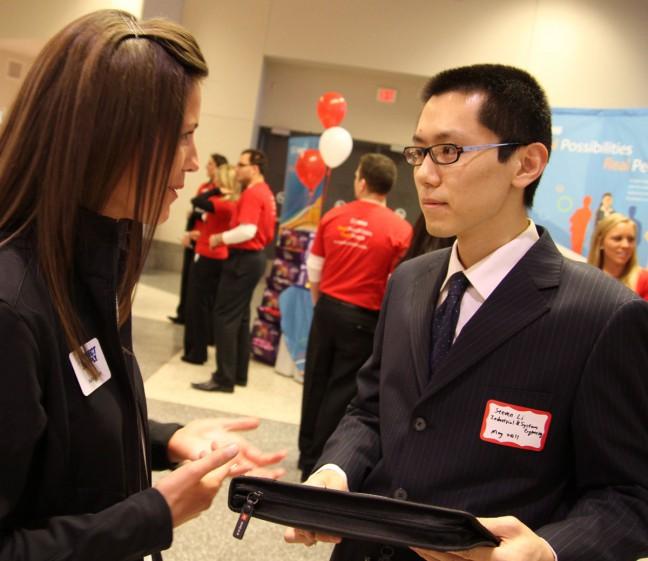For four or more years, we struggle to get to the magical number of credits required to graduate. Crippled hands copy pages and pages of lecture notes. We spend 15 hours or more per week cramming in the library to finish a degree from the University of Wisconsin. Why do we do this? Why do high school students decide college is the right option for them? Is the purpose of college to become well-educated or to become successfully employed?
Today, post-secondary education is more career-focused; people generally go to college to get a job. It seems unimaginable that one would to go to college and not expect a better job upon completion of his or her degree. In this way, the job market for recent graduates has a huge impact on the decision of whether or not to go to college. One could argue that this is why education now has such a strong career focus. If students believe a post-secondary education will not help them find a career, they will most likely not go to college.
Although it is true that employees need career skills and knowledge to get a job, there is something missing in the “college = jobs” mentality. To get a well-rounded degree, one must develop both workplace skills as well as a wide range of knowledge on various topics. In other words, a person needs critical thinking skills and diverse background knowledge to achieve success, not just a degree.
As Dan Berrett, a senior reporter for the Chronicle of Higher Education, put it, hospitals may want nurses who can draw blood, but they also want nurses who will consider the cultural differences that drive patients’ health decisions. Likewise, engineers should be able to build a bridge and understand how the bridge will effect the local environment and community.
Berrett goes on to state that this shift in the purpose of college, that of a shift away from intellectual curiosity and a focus on “well-roundedness” to getting a job, occurred over the past few decades and that the consequences of this shift have been well-documented.
In 1971, less than 40 percent of freshmen believed being financially well-off was “very important.” In 2013, that number jumped to more than 80 percent. This shift even changed the types of degrees people were getting. Business has been the number one major since the 1980’s. In 2011, the number of people getting a business degree was twice that of the next most popular major.
In the context of a society with ever increasing student debt, it is easy to understand why college has become career driven. How can we possibly pay off these debts unless we have a decent job waiting for us? However, if the purpose of a bachelor’s degree is to gain knowledge in a specific work skill, what happens to the employee who has a diverse background and critical thinking skills, but no degree?
All in all, higher education was designed to be multi-purpose, but it has become nothing more than a conveyor belt leading straight to our workforce. It should stimulate our minds, improve the economy and make our future pocket books happy. As the purpose of college continues to move toward getting a job over a goal of gaining knowledge and intellect, we could potentially lose the true essence of higher education.
Mackenzie Krumme ([email protected]) is a junior majoring in international studies and intending to major in journalism.














